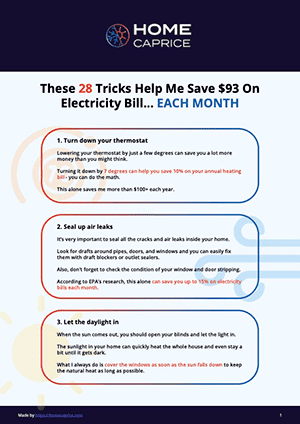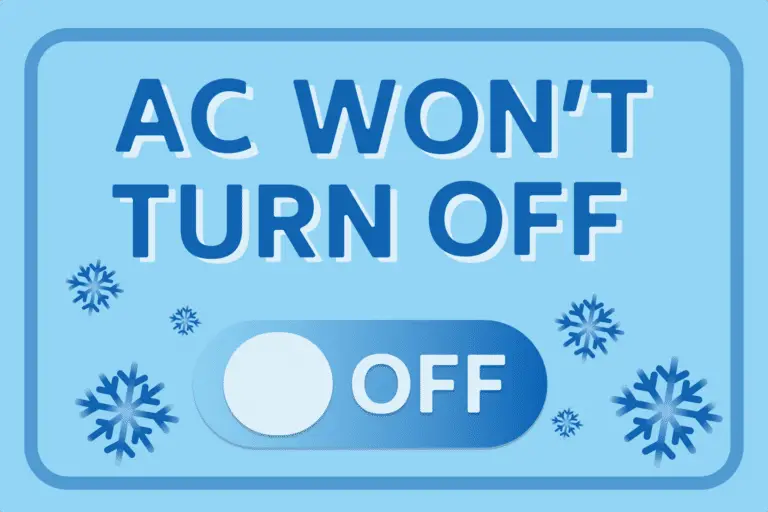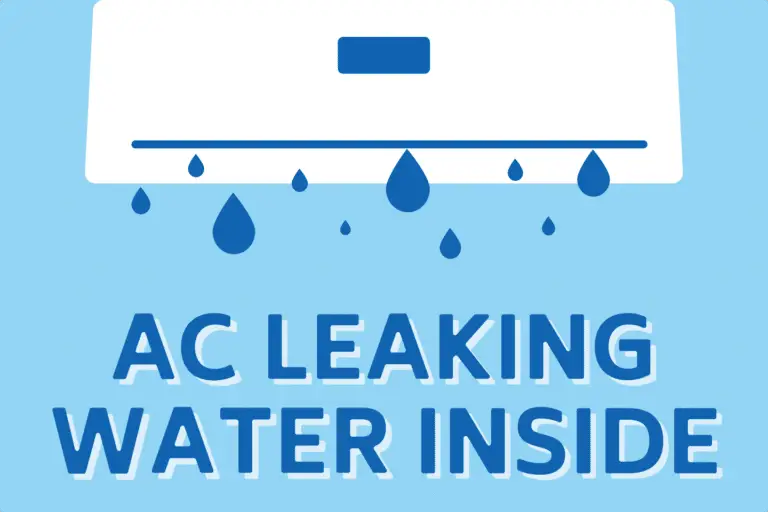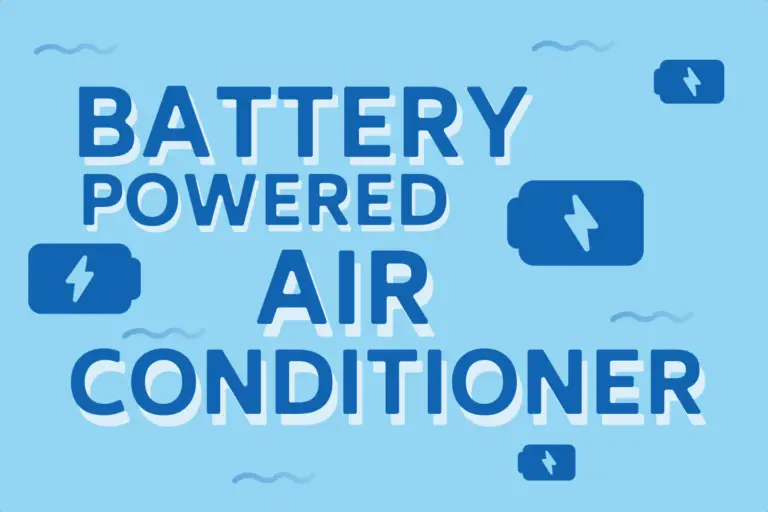When you own a home, there are a lot of decisions that go into making it the perfect place for you and your family.
Something that people may not always think about, but that can have a big impact, is the cooling system for their home. In addition to ceiling fans, you probably want to consider a heat pump or air Conditioner unit.
Several different factors can determine whether you’d want to use a heat pump vs. an air conditioner, and there is no one answer for everyone.
Below, we’ve taken the time to discuss both options and the pros and cons of using a heat pump vs. air Conditioner, so that you can make an informed decision about which is right for your home.
Heat Pump Pros & Cons
| ✅ Pros | ❌ Cons |
|---|---|
| Because heat pumps remove heat from a cool area and transfer it to a warm area, they can be used to both heat and cool and so can be useful all year long. If your heat pump is not cooling, here might be the reasons why. | Heat pumps are not suitable for every climate. Though heat pumps can be a good alternative to an AC unit, they can’t do the work of a furnace when it comes to heating your home. |
| In the summer, heat pumps will move the warm air outside, leaving your house cool. In the winter, the opposite will happen and your heat pump will warm your house instead. | If you live somewhere that gets extremely cold, a heat pump will not be enough to keep you comfortable during the winter months. You will probably need another type of heater as well, so choosing to go with an AC unit and furnace may be a more practical option. |
| Heat pumps can save you money! Heat pumps don’t generate heat, they simply move it from one place to another, which can be a more cost-efficient way to cool your home. | Installation costs of heat pumps can be high, and while they may save you money in the long-run, an expensive upfront cost is not possible for everyone. You should also consider that the larger your house, the more indoor units you’ll need for the air to move efficiently, and so the more expensive installation becomes. |
| Using a heat pump vs. AC is a more environmentally friendly way of heating and cooling your house. Geothermal heat pumps can be especially energy-efficient. | Because heat pumps make use of both an indoor and an outdoor unit, the installation process can be difficult and time-consuming and may disrupt your house and daily life. The average lifespan of a heat pump is between 10-15 years. If you notice that your heating or cooling bills have become more expensive or if the unit becomes noisy and starts rattling, it is probably time to look into a replacement. |
Air Conditioners Pros & Cons
| ✅ Pros | ❌ Cons |
|---|---|
| Central air conditioning units are the best way to keep your house at a consistently cool temperature. If you live in a climate that can get extremely hot, having central air can be the most reliable way to keep your home at a comfortable temperature during warmer months. | Maintenance and upkeep can be a major hassle with air conditioning units. AC units need ductwork to operate, and if your home does not already have it, installing ductwork is a major and expensive renovation. |
| You are also in control of just how cool your house will get. You can choose and adjust the temperature based on the weather outside and your own preference so that your house is cooled exactly how you like it. | The filters and coils in AC units also need to be cleaned on a regular basis. Keeping up with this can be time-consuming, but if it isn’t done, your air conditioner will not work as well as it should. |
| It is possible that air conditioning can be better for your health. The process used by AC units to cool your home can also filter out pollen, grass, and other common allergies and keep them from getting inside. | Being able to set one temperature for your whole house can be a good thing if you live alone or your whole family likes the air the same. But the drawback to central AC is that you can’t change the temperature for each individual room, so someone may end up too hot or too cold. |
| If you only have a small space that you want to air condition, window units are an affordable option. They are not expensive to buy or maintain and work very well for cooling any room where they’re installed. | Besides the cost of your conditioner and its installation, you will probably need a separate heating unit to use in your home during the colder months. This means that you should also consider the cost of installing and maintaining a furnace when you’re looking at your overall budget. |

Download this FREE cheat sheet to find 28 tricks that can help you save on your electricity and heating bill each month.
Click here to get a FREE Cheat-SheetHeat Pumps
How They Work
Before you can decide on a heat pump vs. AC, it’s important to understand what each is and how it works.
Heat pump systems move heat from a cool space to a warm space using electricity. In warm months this means that warm air is being moved outside, which leaves your house nice and cool.
Different Kinds
There are three different kinds of heat pumps that could be used in your home:
Air-source Systems
- The majority of heat pump systems found in homes are air-source systems.
- These systems are made up of two different parts.
- There’s an indoor unit called the air handler and an outdoor unit which is called the heat pump. Tubing connects the two units, and the heat is absorbed from one area (such as inside your house) and then released in another area (outside).
Split-ductless systems
- Split-ductless heat pumps also are made up of an indoor and an outdoor unit. A compressor or condenser is used outside, and anywhere between one and four air handlers are used inside.
- The indoor units should be installed somewhere high, like up on a wall or on the ceiling. They are operated by remote control.
- Then, just like with the air-source systems, the air is passed between the two units by the tubing that connects them.
Geothermal heat pumps
- The third type of heat pump is called a geothermal heat pump.
- Geothermal heat pumps use pipes to move heat from inside your house to outside. These pipes have a water solution inside them that is always warmed to 50 or 60 degrees Fahrenheit.
AC Units
How They Work
Understanding air conditioning units will play a big role in helping you decide on a heat pump vs. an AC. Air conditioning units are common in many homes, but most people don’t understand how they actually work.
The air conditioning unit in your home works a lot like your refrigerator does to keep things cold.
The process can seem complicated, but the bottom line is that unwanted heat is removed from your house through a set of coils and fans. Your home is then left comfortably cool.
Different Kinds
There are several different options for air conditioners, and knowing more about each may help you in your decision to choose a heat pump vs. AC:
Window units
- For smaller apartments or single rooms, window units are the most common type of air conditioner.
- With a window air conditioning unit, all of the components used to cool the room are held inside of a single box.
Split air conditioner
- To cool several rooms, a split air conditioner can be a good option because it typically does not take up as much room as a window unit.
- These air conditioners have both an indoor and outdoor unit, which work together to cool the space.
Central air conditioning
- If you’re cooling a bigger building or entire home, central air conditioning makes the most sense.
- These units are made up of large compressors that can produce lots of cool air at once to distribute throughout a space.
Making Your Decision: Heat Pump vs. AC
Depending on where you live, how big your home is and what kind of budget you’re working with, you may have an easy decision to make when it comes to a heat pump vs. AC.
If the choice is not clear, though, it is important to consider the pros and cons of both options.
If you have experience with either of these systems or an opinion you’d like to share, please feel free to leave us a comment below.
FAQ
Are heat pumps more efficient than air conditioners?
Yes, heat pumps are generally more efficient than air conditioners. Heat pumps are capable of both cooling and heating by transferring heat between the indoors and outdoors.
They achieve higher efficiency by using a refrigeration cycle that can be reversed to extract heat from the outside air (even in colder temperatures) and transfer it indoors. This process requires less energy compared to generating heat through electrical resistance or burning fossil fuels, which is typically used in conventional heating systems.
As a result, heat pumps can provide both heating and cooling with lower energy consumption, making them more efficient overall.
What is the downside to a heat pump?
One potential downside of heat pumps is their reduced heating efficiency in extremely cold climates. As the outdoor temperature drops, the heat pump’s ability to extract heat from the outside air decreases. In such conditions, the system may need to rely on supplemental heating methods, like electrical resistance heating, which can be less energy-efficient and more expensive to operate.
Additionally, heat pumps require a significant upfront investment compared to traditional heating and cooling systems. However, these costs can be offset by long-term energy savings.
Can a heat pump be used as an air conditioner?
Yes, a heat pump can be used as an air conditioner. In fact, one of the primary functions of a heat pump is to provide cooling during hot weather.
Heat pumps have a reversible refrigeration cycle that allows them to extract heat from indoor spaces and release it outside, thereby cooling the indoor environment. By reversing the cycle, heat pumps can switch between cooling and heating modes, making them versatile for year-round use.
This ability to provide both heating and cooling is one of the advantages of heat pumps over traditional air conditioners, which only offer cooling capabilities.


Download this FREE cheat sheet to find 28 tricks that can help you save on your electricity and heating bill each month.
Click here to get a FREE Cheat-Sheet


